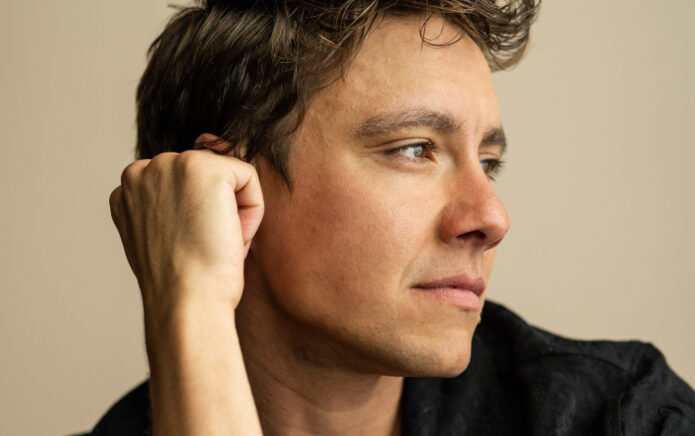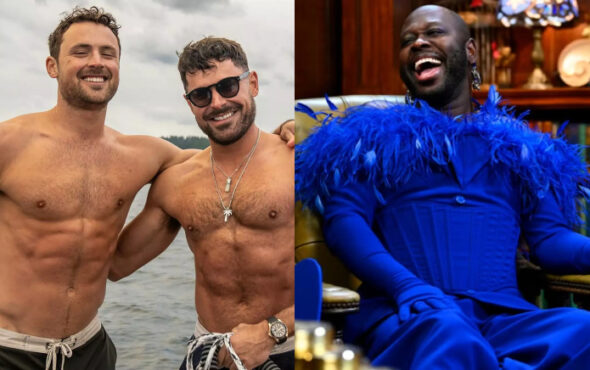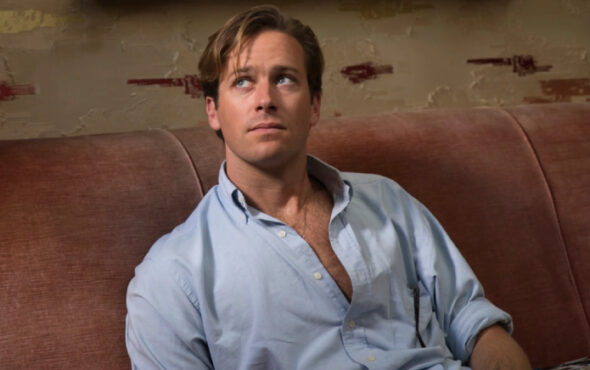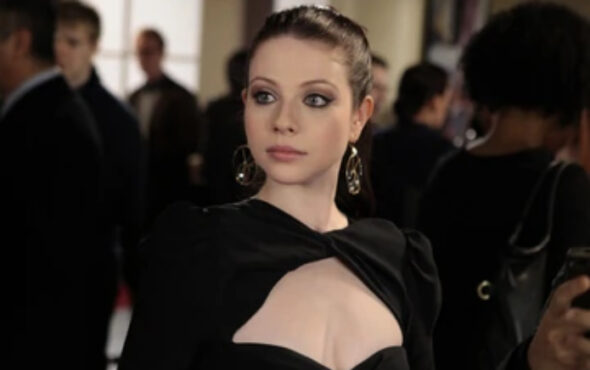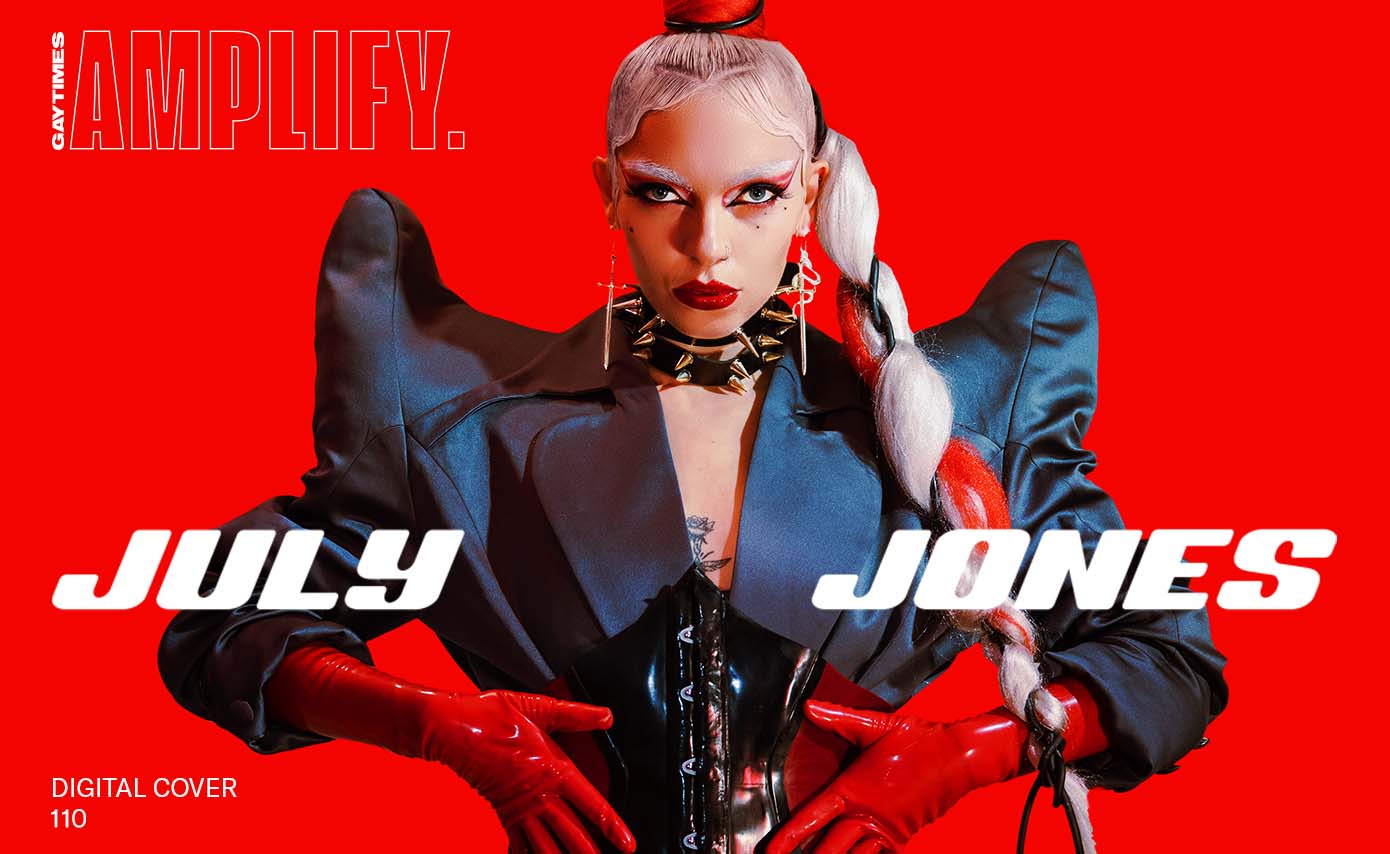
“I’m gonna get 20 Grammys,” July Jones confidently tells us. “That’s where I’m heading so watch me!” The British-Slovene artist is speaking with GAY TIMES over the phone two weeks after the release of Aladdin, a merciless alt-pop and rock anthem featuring brutal break-up lyrics such as, “So concerned about the princess you forgot about the queen, fuck your Jasmine and your carpet ’cause to me it’s so obscene,” and “The worst thing about betrayal is that it never comes from enemies.” (The latter, especially, hits hard.)
Like her experimental bop Butterflies, which features Suzi Wu and Girli, the track has been lauded by fans, finding viral success on ze TikTok. Although she attained a devoted fanbase following the release of singles such as Liar Liar and I Fall Apart, the two aforementioned bangers mark the real debut of July Jones, an artist who’s not afraid to “push boundaries” on her way to achieving 20 Grammy Awards.
“I definitely want recognition for what I do and I want to encourage younger people that it’s possible, especially queer kids,” says the 25-year-old star. “We are so limited sometimes and we don’t believe in ourselves because we are so preoccupied with being accepted by the world for who we are.”
July, who identifies as pansexual, landed her first record deal at the age of 14, but broke out of her contract after straight male executives tried to force her into a direction she wasn’t satisfied with. Now, she’s ready to conquer the music industry as the most authentic version of herself – and she’s not afraid to ignite some “uncomfortable” conversations in the process surrounding feminism, sexuality and mental health.
Read ahead for our full conversation with July, in which the star reveals how her Slovenian heritage has inspired her artistry and addresses the lack of female talent behind the scenes in the music industry, as well as her future as a Grammy darling.
Congratulations on the release of your latest single Aladdin! How have these past few weeks been for you pre and post-release?
It’s been a stressful few weeks but it’s what I love to do, so it’s all good. I’ve just been on a photoshoot. It’s been very stressful and exciting at the same time!
Aladdin is such an earworm, and the lyrics are – which I love – quite brutal. What’s the story behind the song?
I wrote Aladdin six months ago. I was going through a really tough time in my relationship, it’s probably the most personal song to me. I was just like, ‘Okay, I’m going to go in the studio and write everything that I feel.’ I just felt like being really direct with it. I then posted a snippet of it on TikTok and it blew up! It was all public. At least people loved it and related to it. It was a success at the end of the day! We went back into the studio and I co-produced it. I really wanted to make sure that I have this new way with production and writing, where there’s not a clear pop structure. I’m really inspired by trap music like Travis Scott, Kendrick Lamar and Kanye West, artists that are breaking boundaries when it comes to music structure. I wanted Aladdin to be that.
TikTok is eating it up! How does it feel when something you create resonates with so many people around the world?
It was really scary! Obviously, people have all sorts of opinions and everybody’s like, ‘Who is this girl?’ Then the fans were going after my personal life, becoming crazy and possessive. So, it was really scary at first because I’m quite a private person and I don’t like too much to be online. It’s such an impersonal thing when people throw hate because you can’t pin down who these people are. It’s scary to put yourself out there. Obviously, I was really grateful because everyone was so supportive.
You experimented with new structures on Aladdin, but also on your previous single Butterflies, which sounds fresh as hell. Why was this the right song to launch your new era?
I wrote Butterflies two years ago, actually. It was the first song that I’d written where I was like, ‘Whoa, this is me.’ My whole life I’ve spent writing for other people and I love writing and producing for other artists, but it was the first time where I wrote a song and thought, ‘This is my sound. I want to be an artist.’ I feel like Butterflies is a statement of who I am. I want to make pop music but also bring the musicality to it because of all of my years being in music and coming from a jazz and soul background.
You collaborated with the incredible Suzi Wu and former GAY TIMES cover star Girli on the track. How did that come to be?
The whole mixtape is a collaboration. I’m trying to bring people on my music that I admire and I take inspiration from. I take a lot of inspiration from international artists and females that are pushing boundaries. Suzi and Girli are two artists that I’ve been writing with and they happened to be around me when that song was coming out. We added two verses and they fit on the song so perfectly. We then shot the music video in our house during corona. We didn’t have anything, we just shot it in our little apartment and it was just friends hanging out. It was so cool. I’m really grateful for those girls, grateful to have those kinds of people around me that I can take inspiration from.
What can you tell me about this new mixtape? I know you’ve been waiting a long time to get a full collection out…
We have a big mixtape coming out. There’s a lot! There’s over 15 tracks, and we’re going to be releasing it in three separate parts. We’re releasing the first part really soon, but we have one more single coming first. It’s a conceptual mixtape, so everything is connected together with the visuals. It’s a lot about who I am a person and where I come from. I talk about my sexuality and my heritage, and I wanted to include a lot of sounds from the Balkans, because that’s where I was born, and I want to represent the Eastern side of the world. I feel like it’s so underrepresented, especially in the music industry. If you think of any artist, there’s none that got any Grammys or Oscars or any recognition whatsoever. I want to show the world the beautiful sounds that we have, and also include them in pop music. Also, I’m in a queer relationship, so the lyrics are diverse and inclusive of different genders. On top of that, almost every song has a collaborator on it. I really wanted to bring different people from different countries that I felt like weren’t represented in the Western media. For me, it’s very important to show the beauty of European artists, Middle Eastern artists, Asian artists and African artists, all sorts of different styles. You can expect a lot of pushing of the boundaries!
You have always been very vocal about your queerness. With LGBTQ+ rights being stripped away in countries around the world including the UK, particularly with trans rights, is it important for you to be loud and proud about your identity?
100%. I’ve always been very outspoken about my sexuality because I thought it was really important for the younger generation, for them to look up at artists that are outspoken and be like, ‘Oh, they are living a successful life and they’re queer.’ For me, when I was growing up, I didn’t have that. I didn’t even know what LGBTQ+ was. Even though I always knew I liked girls, my mind didn’t cross that line. It’s so important to include that in my music so that people can relate to it. Sometimes, we think that where we live – like London – is very free, but the world isn’t like that. We need to spread that message. In Slovenia, in the Balkans, we don’t have any celebrations. It’s all protests. Because of my background and because my family didn’t speak to me for a really long time about it, I want to be that role model for the kids who don’t have one. With trans rights, that’s so close to my heart because my partner is transgender, so we are always really outspoken about that issue. And I think, being from where I am, I have faced a lot of racism. I wanna normalise the fact that I have an accent or the fact that, where I come from, I shouldn’t have to be a cleaning lady. I wanna be that person who gets a Grammy and have people say, ‘I can be from wherever I am and I can also go and get what I want.’
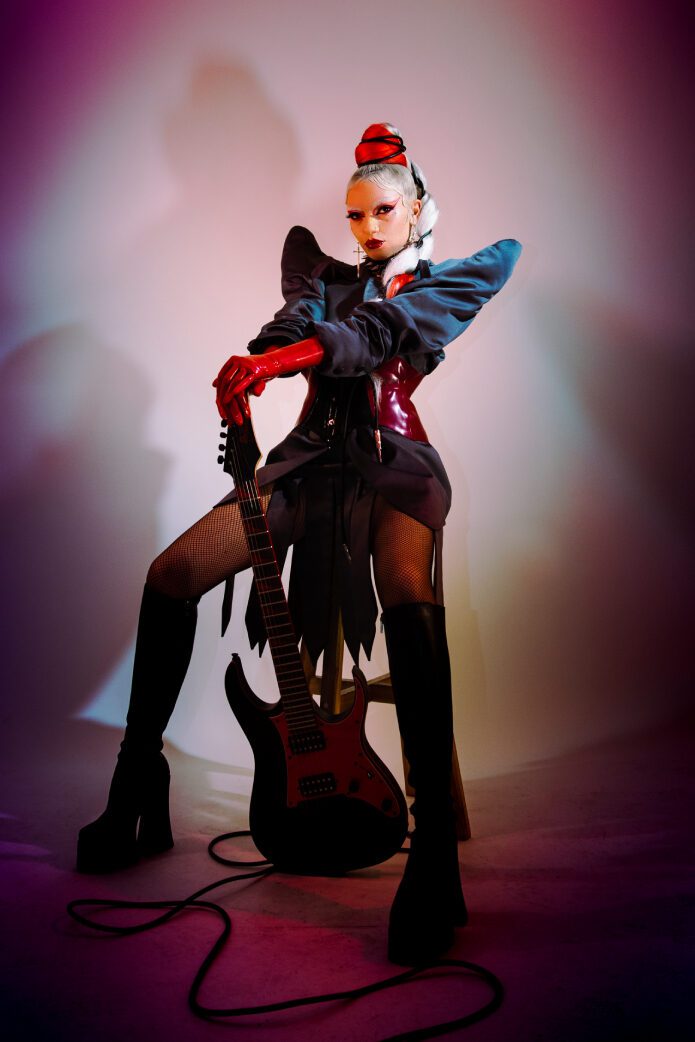
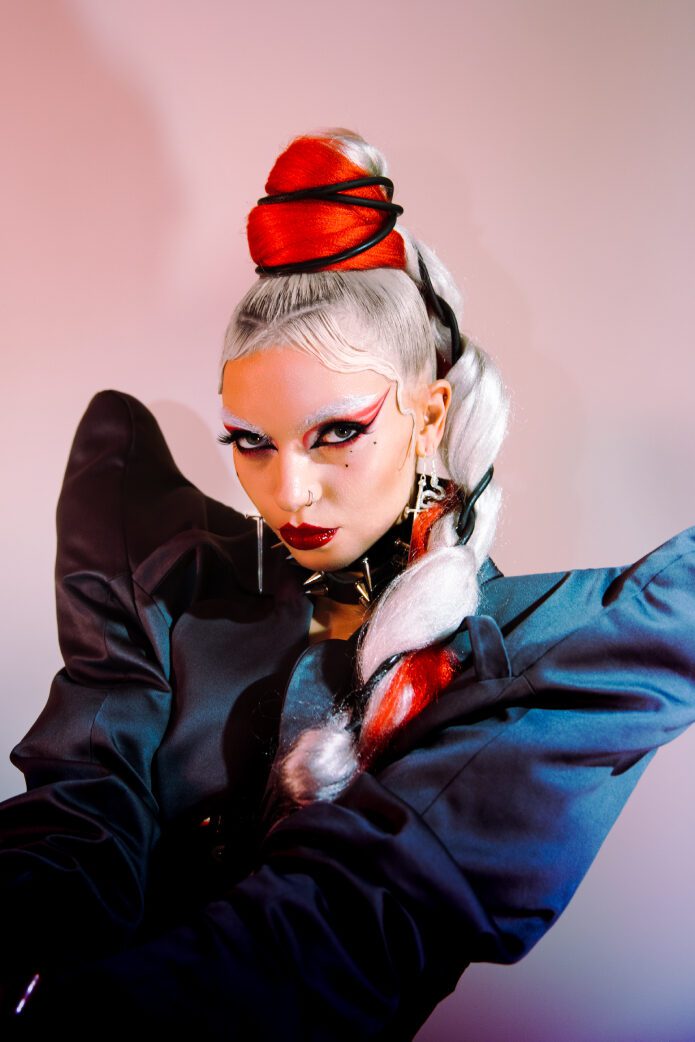
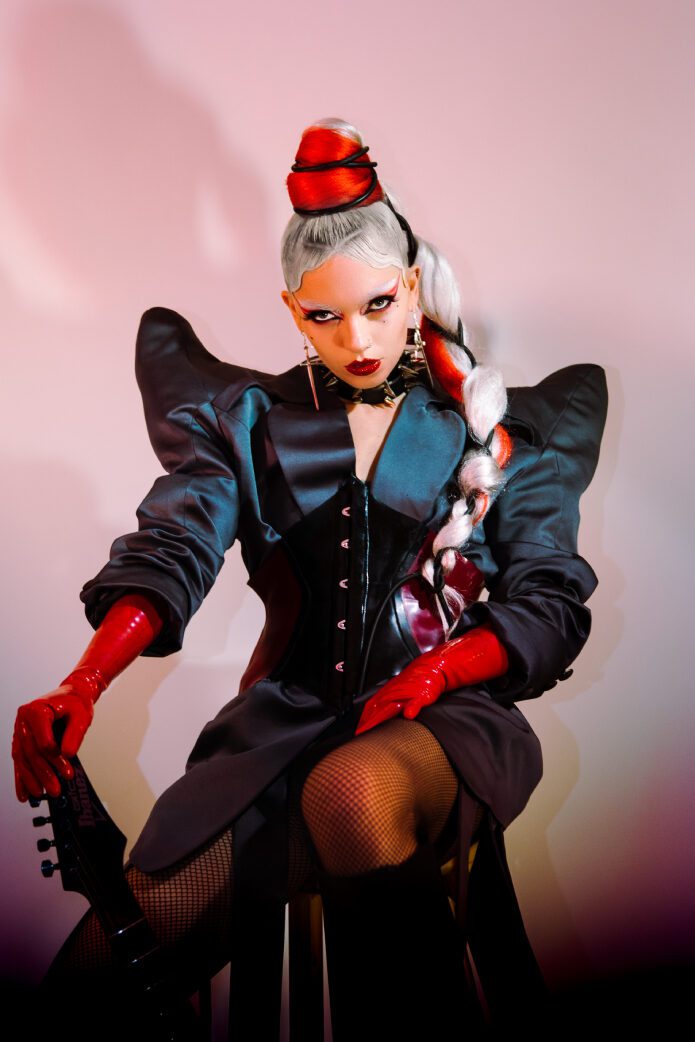
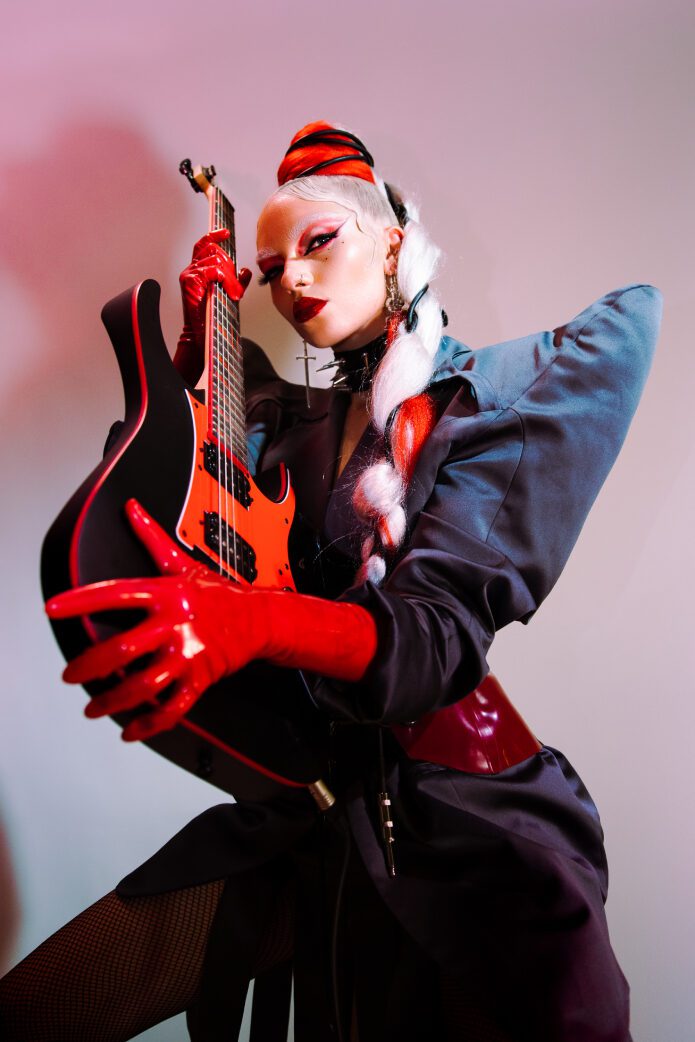
In previous interviews, you said you were worried that your accent would hinder your success in the industry. Can you tell me a little bit about that and how it’s been for you working in the industry this past decade?
Yeah, of course. I didn’t speak English, so starting out and being signed really early on, I had to learn the language. It started limiting me, but my strength has always been in the melody. As you go through the industry, you would think it would be normalised but it’s not. Even when you look at the movie industry, accents are so not normalised, or if you have an Eastern person playing any role it will be a prostitute or a poor person. That’s such a bad image for people growing up. I only had Melania Trump as a person that succeeded, and that’s a really weird person to have as a role model! But, she was the only one that succeeded at anything, coming out of nowhere. It’s definitely defined a lot of me, but I feel like we’re also coming to a place in the world where we can talk about diversity. My place in this is talking about accents and how diversity is more than skin colour, diversity is where people come from. For example, diversity in the UK might be different to diversity in America. It’s so mixed, so I wanna raise that part of my Slovenian heritage.
When I last spoke with you, you revealed that music executives tried to control your sound and image…
When I was first signed, I was under a deal where they control… everything. They had a vision of who I should be as an artist and I was very rebellious. I knew who I wanted to be. At one point, I just blocked all their accounts and told them I didn’t wanna do it. They were like, ‘But you should be the next Adele!’ I didn’t wanna be Adele. I froze their accounts and they tried to sue me. That was funny, looking back.
What did you take away from that experience and how has that influenced the artist you are today?
As an artist, I would invite everybody to be as authentic as they want to be. Be who you are. If someone else is shaping you, you’re not gonna be happy at the end of the day. Being independent is also important and finding who you are. Don’t let other people determine who you should be as an artist. I have definitely learned that the hard way and I would advise anyone else to stick to their guns.
Are you now surrounded by a strong support system, people who believe in your artistic vision?
Yes. I’m so lucky. I ended up with the best team around me. Everybody encourages my vision and I have all the creative freedom. They embrace what I want to say and they’re so supportive of what I have to say politically as well, so I never feel boxed in. I feel really lucky that we’re arriving at that point.
You’re very active on TikTok, like we mentioned earlier! TikTok is a whole other beast now, right? It feels like an integral part of a music campaign?
It’s such a weird one! You’re basically controlled by an algorithm that nobody understands. It’s a shot in the dark. For me personally, I like to use it as a platform where I put my music out there and I show people behind the scenes, which works really well. I’ve found a way to utilise it without doing the TikTok dances! Those are not my thing. Me and Girli were learning this TikTok dance and we were like, ‘This… is not us.’ I’m at a point now where I can show people how to produce songs and how I write for other artists, or my own music. It works really well.
Let’s talk about your style. It’s just… next level. Who are your influences?
I have really bad synaesthesia, so I always visualize things. The thing with my style is, it’s what I feel inside. I love femininity. I really embrace that and I think it’s been put down so much by… the whole world. I first came out as a lesbian and thought, ‘Now I’m a lesbian, I have to dress in suits.’ It took me time to realise that my sexuality can be whatever it wants to be. I can dress however I want. I really find myself embracing the female body and I love my body, I’m really proud of it. I want my look to show that. Sometimes people ask, ‘How are you so confident?’ and it’s seen as a negative thing, but I want it to be admirable. I do that with my clothing, embracing what I already have and showing what I feel. I love the colour red, and I only wear red, black and white. I don’t know why! Don’t ask me why, I have no idea! But, they are the colours I feel good in and I love pushing boundaries by making people think about what I’m wearing.
In the past you’ve written for artists such as Zolita, Girli, Nasty Cherry and – one of the most successful bands in the world right now – BTS. Has songwriting always been a passion of yours?
I was a singer first. When I came to London I needed to make money and I thought, ‘I can make these people’s songs so much better!’ I was like, ‘Pay me £200 an hour and I’ll write you a song.’ That’s how I started and that’s how I made my money for the first few years in London. It went from one thing to another and then I signed to this manager who pushed me into a bunch of sessions. I thought, ‘Wow, I am an amazing writer!’ I didn’t know where it came from but I was good and I wanted to do it. Being in the industry I realised, ‘Wow, there’s… no women.’ There’s all these songs sung by women but there’s not many women writing them. I realised that I wanted to be a huge writer and producer. I thought, ‘I love production and I wanna work in this man’s world.’ The BTS song was a huge thing for me. I love them. I then started writing for Girli’s album, Zolita and Nasty Cherry…
I saw that you posted MNEK’s tweet about the lack of recognition for female producers. Why do you think this is still an issue? Why are there not a lot of female artists behind the scenes?
Because this has just started to change in the past few years, women being embraced. It’s not that men don’t want women in the industry, it’s just that it hasn’t been seen as a female kind of job. Women really haven’t shown much interest in it because there was nobody doing it. I think it’s changing and there’s so many amazing female producers emerging now and I’m so lucky I get to work with some of these people, and be on the frontline of that. I’m gonna keep on going and going. I’m gonna get 20 Grammys. That’s where I’m heading so watch me!
That answers my next question about where you see your career in the next decade. So, we have 20 Grammy Awards but will there be an Emmy, Oscar and Tony too?
Of course! All of them! An Emmy, Grammy, Oscar and Tony.
The full EGOT!
I want to write for artists, have my projects going and tour the world. I definitely want recognition for what I do and I want to encourage younger people that it’s possible, especially queer kids. We are so limited sometimes and we don’t believe in ourselves because we are so preoccupied with being accepted by the world for who we are. We don’t even get to work on ourselves or our careers so that’s what I want to do, I want to be a role model. And I want Grammys!
July Jones’ incredible new single, Aladdin, is now available on iTunes and streaming services. Listen here on Apple Music or below.
